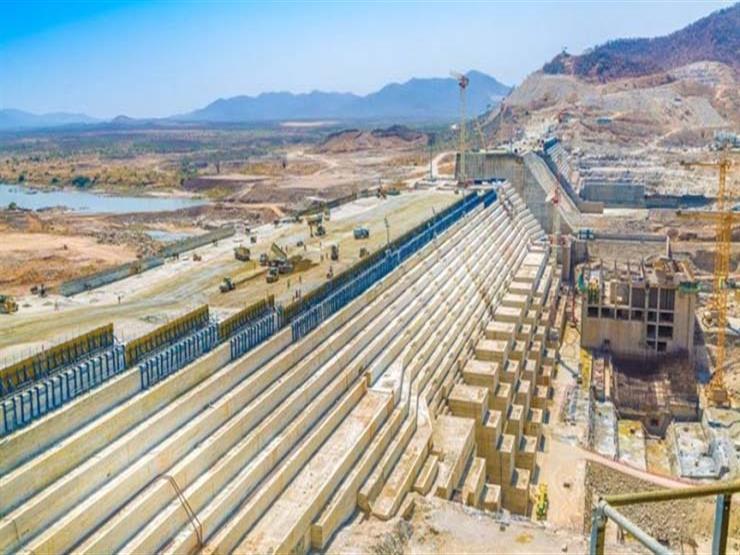The latest round of talks over the filling of Ethiopia’s controversial Nile dam have foundered and the Arab League has made its position clear.
Tuesday’s extraordinary meeting of Arab League Foreign ministers over the Grand Ethiopian Renaissance Dam (GERD) in Doha provided the chance for the AL to signal whose side its on.
A resolution from the meeting stated the Arab League’s categorical rejection of policies that would compromise Egypt and Sudan’s share of water from the Nile, Africa’s longest and most important river.
It even calls on the United Nations Security Council to intervene before the crisis brought by competing claims of the Nile’s resources could degenerate into tensions and open conflict in the region.
North African neighbour Tunisia has been more vociferous in its opposition to Ethiopia’s Nile ambition aside from Egypt and Sudan.
Foreign Minister Othman Jerandi spoke about “defending the Egyptian and Sudanese rights” to the Nile waters.
Although the expressed aim of the League of Arab countries is for the furtherance of the interests of its member countries, the 76-year old organisation is notorious for its lack of unity over the years.
Its members hardly “sing from the same hymn sheet” on issues of common interests.
But the vexed issue of the Nile seems of late a unifying factor for the Arab League’s Arabic-speaking African and Asian nations.
The league is particularly incensed by Ethiopia’s unilateral decision to fill the dam for the second year running.
Arab League members led by Egypt and Sudan hold the view that Ethiopia should be signatory to a binding legal arrangement with its downstream neighbours over the filling of Africa’s most expensive hydroelectric dam project valued at $4.8 billion.
The dam is set to produce 6,000-megawatt of electricity which Ethiopia intends to commercialise and supply to its Horn of Africa neighbours such as Djibouti and Eritrea willing to buy.
Tunisia’s FM Jerandi put it bluntly to his peers when he said the water interests of its neighbours are an existential Arab security challenge.
Ethiopia’s insistence that its Nile dam project is a a lifeline for its emerging economy has always met with vociferous opposition from its downstream neighbours who sometimes resort to tough warnings.
In April Egyptian President Abdel-Fattah al-Sisi warned that his country would never bow to Ethiopian interests on the Nile and compromise its water security.
Although he stopped short of beating the drums of war, the Egyptian leader made oblique references to it.
A few days ago the latest round of talks sponsored by the African Union (AU) had failed with Ethiopia insisting on filling the dam in July as the rainy season begins.
Egypt recently sent a protest letter to the UNSC aimed at stopping Ethiopia from going ahead with filling the dam.
The authorities in Addis Ababa have since rejected Egypt’s appeal to the UNSC.
Ethiopia said it is dismayed by the “Resolution” of the Executive Council of the League of Arab States on the Grand Ethiopian Renaissance Dam (GERD) issued on 15 June 2021 after its meeting held in Doha, Qatar.
The country’s Ministry of Foreign affairs said on Wednesday in a statement that Ethiopia rejects the “Resolution” in its entirety.
“In fact, this is not the first time the League of Arab States issued a statement regarding its misguided positions on the GERD, the ministry’s statement said.
“As a result of its egregious support to the baseless claims of Egypt and the Sudan regarding the GERD, the League of Arab States has already squandered its opportunity to play a constructive role. It should be abundantly clear that futile attempts like this to internationalize and politicize the GERD will not lead to sustainable regional cooperation in the utilization and management of the Nile,” it said.
It added: “The League of Arab States should know that utilization of the Nile waters is also an existential matter for Ethiopia. It is about lifting millions of its people out of abject poverty and meeting their energy, water and food security needs. Ethiopia is exercising its legitimate right to use its water resources in full respect for international water laws and the principle of causing no significant harm. Ethiopia firmly believes that it is only through cooperation and dialogue that the water security of any of the Nile Basin states can be achieved”.
Addis Ababa said The Nile is a shared resource and not an exclusive property of Egypt and Sudan.
It said it is perplexing that the League of Arab States places particular emphasis on the water security of the two downstream countries in complete disregard to the interest of the rest of the Nile’s riparian states, which are the sources of the river.
“There is no better example than this to demonstrate the organization’s unhelpful and misguided approach towards the Nile issue”, the statement said.
In Ethiopia’s view it had from the outset done everything possible to accommodate the concerns of the two downstream countries in good faith with the hope of ushering in a new era of cooperation among the Nile Basin countries.
“During the South African-led negotiation, it was Egypt and the Sudan that disrupted the negotiations seven times”, the ministry added
Ethiopia also accused Egypt and Sudan of “unnecessarily politicizing the GERD negotiation and try to make it an Arab issue”.
MG/as/APA


